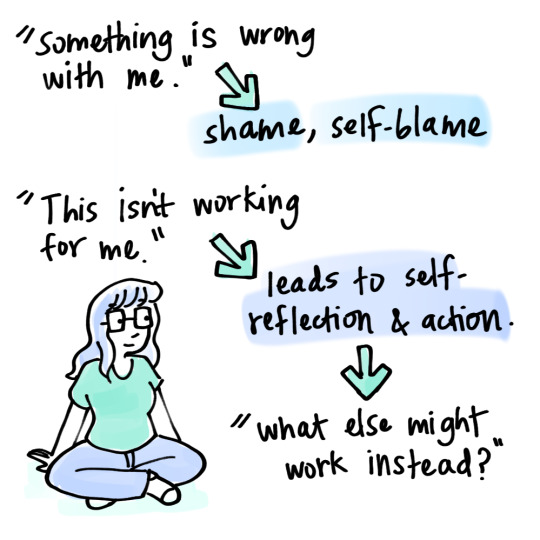Late-20's white genderfluidMobile linksDissociative Identity Disorder (recognized but not diagnosed)Professional diagnosis: SID/A-spec, ADHD, GAD, Chronic insomniatrying not to force anything and accidentally make more problems instead of fixing them. Advice is appreciated.
Don't wanna be here? Send us removal request.
Text
Something I was talking about with some friends in a server last night that's still on my mind is how late-stage recovery CDD systems are not really treated like people, more like a goal or a symbol (simultaneously of health and violence, depending on who you ask). We're also not really treated like we may still benefit from community and resources, there's not much out there in terms of information or spaces and we're often treated like we don't really belong when we try to be a part of general CDD spaces.
I often feel really objectified as someone in "late stage" recovery, especially when I am operating as fully fused. My experiences are used as fuel for arguments, I'm simultaneously demonized and put on a pedestal, but I'm not often really treated like just any other person with DID.
I often feel like I'm not really allowed to have symptoms or have periods where I am not doing so well with my DID, people expect me to be "cured" and at the same time are very quick to remind me that "fusion can always fail and you'll split again".
It feeds a lot into the perfectionism I struggle with that I mentioned in this post.
I have noticed that most CDD systems in the spaces I've frequented are early-recovery or no-recovery, and a good amount are also pretty new to figuring out they're a system and/or CDD, which is fine, just means there's not really a lot of late-stage recovery folks around and a lot of misinformation tends to get spread about late-stage recovery. I often feel pretty alienated from the community with the point I'm at with my DID and recovery.
When I talk about my experiences with fusion and recovery, it is often that others don't really get what I'm talking about, and that can be really isolating.
As well, most system spaces focus a lot on having alters/parts, and on being separate individuals, and on splitting, and my system just doesn't really... work that way anymore, unless I'm doing particularly poorly and need that sort of separation. My parts more or less function like IFS parts more than DID parts nowadays, a lot of the time. I even started working with an IFS therapist recently.
At this point, IFS is actually more of a helpful framework for understanding my system than what the CDD community has been providing me, because the CDD community largely just doesn't really have any resources for systems that don't function like early-recovery systems do, or any understanding of the differences in system function.
And I kind of just... wish it was different, because I love the CDD community, it has been my home for quite a while now and it always will be, I think. I just often don't really feel as supported as someone with DID in a later stage of recovery as I was in an earlier stage of recovery, and that makes me feel kind of sad. I've largely had to find resources on my own, and aside from the small community of late-stage DID recovery folks on here I don't really get that same sense of shared experiences or community anymore.
#sysconversation#didrecovery#did recovery#i haven't really talked or posted anything in a while#or reblogged much at all#i definitely feel like things have gotten to a point that's it's just difficult to feel like I belong
76 notes
·
View notes
Text

Relaxation vs Dissociation...
Thank you for all your support on Patreon! You can see all recent comics posted there, along with the behind the scenes process, outtakes, and other fun stuff! patreon.com/kimchicuddles
text reads:
Is it relaxation or dissociation?
Dissociation is a defense mechanism, and can even be life saving,
but is not a sustainable strategy for ongoing stress.
When we are relaxing, we are HERE,
and when we are dissociating we are split apart to AVOID being here.
Relaxation is often followed by clarity,
while dissociation is often followed by confusion,
or even memory gaps.
To shift from dissociation to relaxation I can ask myself...
What do I feel when I put my hand on my heart and take a deep breath?
What do I notice when I flex my fingers and press my toes on the floor?
173 notes
·
View notes
Text
I learned about how other DID systems experience amnesia and one description has hit the nail on the head. We experience black-out amnesia, but not how it is commonly portrayed online or in media. We do not get confused about where we are, find ourselves in places we do not remember going. We do not notice our amnesia unless we are reminded of it.
Amnesia to us is like digging through sand trying to find the memory in our brain.
I do not recall forgetting something until i am supposed to remember the events. It feels to me like i have experienced every second of every day. I find it difficult to notice memory gaps on my own, and i believe that is partly the point of DID.
2K notes
·
View notes
Text
Anyone else sorting their alters into what acute stress response they usually exhibit? Idk we've found it somewhat helpful to understand why each of us react as we do

We also separate us into what emotions we each primarily feel. This simple image is helpful for us to remind ourselves that all emotions (and all alters) serve an important purpose!
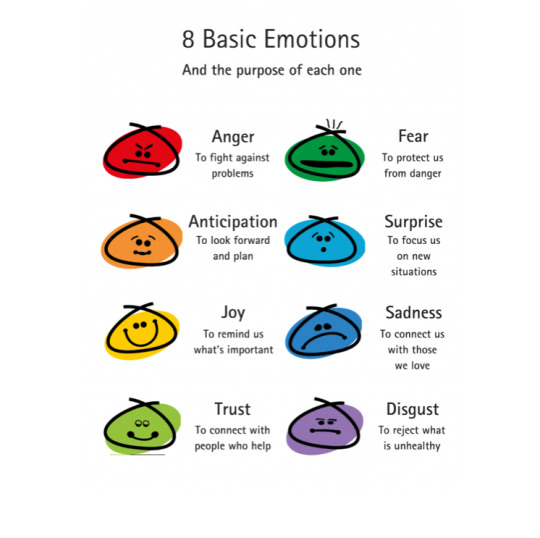
Idk if this is helpful to other dissociative people and this might be because we are also probably autistic, but categorising us in this way has been helpful to understand ourselves and to teamwork better
98 notes
·
View notes
Note
hi! recently fused system here. did your autistic habits get... "worse", for a lack of better wording? i feel like i'm far more sensitive now that i don't lean on dissociation as a crutch. i had a horrific meltdown yesterday over something that used to just trigger intense dissociation and "freeze". i normally experience shutdowns instead. (i'm alright now, that's not the point of the ask. just context.)
anyway, the real point, i'm taking care of myself, obviously, but it just... i dunno. i feel like everything is way more easily overwhelming and i guess i'm wondering if other fused/functional people relate? solidarity is always nice to find and your blog has been a big source of hope/comfort for several months now.
i hope your day is going well. 💙
Oh ABSOLUTELY. Like the first year after hitting functional multiplicity was honestly almost DEDICATED to autism related issues that only arrose when our dissociation became so much less. Its also something Ive generally heard from people with really any of their non-trauma and/or dissociative centered symptoms.
But yeah it was like a whole saga of having to figure out and navigate the symptoms of secondary conditions now that dissociative was much lower, so huge solidarity
58 notes
·
View notes
Text
I haven't really been posting here.
I made a tiktok and a vtuber tho so Ive been largely focused on that these days.
I don't have any like, mental illness related content tho. Bc honestly I'm terrified to get any attention for that on tiktok. Since like I see a lot more negative attention on there than positive stuff especially for smaller creators 🙃
Anyway so that's what I've been up to. Hmu if you're interested or whatever.
2 notes
·
View notes
Text
I haven't really been posting here.
I made a tiktok and a vtuber tho so Ive been largely focused on that these days.
I don't have any like, mental illness related content tho. Bc honestly I'm terrified to get any attention for that on tiktok. Since like I see a lot more negative attention on there than positive stuff especially for smaller creators 🙃
Anyway so that's what I've been up to. Hmu if you're interested or whatever.
#dissociative identity disorder#did/osdd#actuallydid#did system#actually did#didrecovery#didresolution
2 notes
·
View notes
Text

Jersey girl miku
Check out my Ko-fi
1K notes
·
View notes
Text
okay actually gonna post in tags about this one.
i think systems and pwDID should try to get a bit more comfortable with the idea that we aren't so different from singlets. something i see a bunch even in the most pro-recovery, traumagen only spaces is that you are all still treating your parts and your alters like complete alien aberrations.
parts in DID are an extension off PTSD, following the tosd (and i'm aware of flaws in the tosd), just... now elaborate and autonomous. but we really aren't extremely separate from when singlets talk about their inner child or their work and family selves. everyone has parts, ours are just more separated and autonomous.
i see a fair amount of people not quite... get that? i think even those of you who swear up and down about being pro-recovery and really hating endogenic systems for glorifying our disorder... you still don't quite view your alters as parts of you, parts of a collective whole that navigates your life. they're still alien and separate from you in your mind, emotionally speaking. even if you can quote the tosd and alters aren't seperate people verbatim.
i think a lot of us still emotionally and psychologically cannot recognise this fact because it means you have to confront the trauma. possibly just another design feature.
i think if you can really understand that we are not that different at all from other traumatised people ((C)PTSD, cluster B personality, etc.), you might make a bit more progress on understanding your system and disorder and improving your symptoms.
and i think we could afford to be more thorough in explaining this to people who are fresh in their discovery and journey dealing with DID.
58 notes
·
View notes
Text





system comic I posted on Instagram and figured you guys can have too lol. just thoughts. being a sys kinda sucks but im still grateful for what our system has done for us
560 notes
·
View notes
Text
Workbooks to improve executive functioning
Since the post I made last night about improving executive functioning was so popular, I figured I should pull these out of my comments and give them their own post, in case it's helpful for people.
I have worked with the publishers of all of the books linked below and can vouch for their psychology books. The publisher of most of them, New Harbinger, is an extremely credible evidence-based psychology publisher.
Obvious disclaimer that everyone's brain is different and what works for someone else may not work for you.
Is there evidence that executive functioning can be improved? Yes. This book appears to be a very thorough overview of the field, and contains both advocates and detractors of cognitive training, for a balanced perspective. From the table of contents, I would really recommend jumping straight to Part 3: Developmental Perspectives for executive functioning (EF) writ large.
Certain therapy modalities are specifically designed for skill-building in areas like impulsivity, decision-making, emotional regulation, and cognitive flexibility, all of which are EF skills or very dependent on EF skills. Dialectical Behavior Therapy (DBT) is probably the best field to look at for these - skill-building in those areas is its core goal.
Some DBT workbooks:
The Dialectical Behavior Therapy Skills Workbook: Practical DBT Exercises for Learning Mindfulness, Interpersonal Effectiveness, Emotion Regulation, and Distress Tolerance
The Dialectical Behavior Therapy Skills Workbook for Teens
There are also a lot of workbooks for ADHD that are sometimes more broad but also can help with executive functioning:
The Adult ADHD and Anxiety Workbook: Cognitive Behavioral Therapy Skills to Manage Stress, Find Focus, and Reclaim Your Life
The CBT Workbook for Adult ADHD: Evidence-Based Exercises to Improve Your Focus, Productivity, and Wellbeing
The Neurodivergence Skills Workbook for Autism and ADHD
General executive functioning workbooks:
The Executive Functioning Workbook for Teens
Executive Functioning Workbook for Adults: Exercises to Help You Get Organized, Stay Focused, and Achieve Your Goals
Hope these are helpful to someone!!
6K notes
·
View notes
Text
Folks have got to understand that they probably aren't messed up by some Secret Big Trauma that they just can't remember; but rather by a million tiny microtraumas that they do mostly remember but don't even register as traumatic because nobody actually understood that these things would cause trauma, much less stack on each other over the years.
146K notes
·
View notes
Text
I have a friend who gave me a workbook to help with suicidal ideation, something she uses with her patients. And she gave me permission to share it with others.
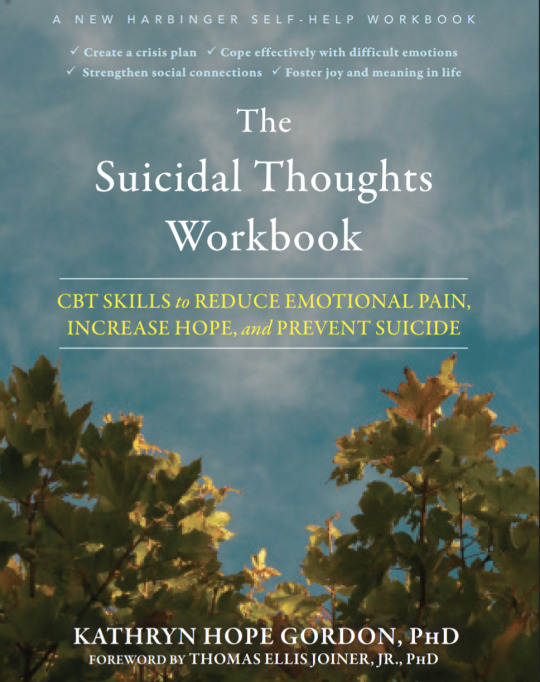
Lots of industries are being hard hit right now; animation, gaming, tech, journalism, etc. Genocides happening before our eyes. Rising inflation. But please, I beg you not to lose hope.
The world will always be a better place with you in it. Please be kind to yourself.
390 notes
·
View notes
Photo
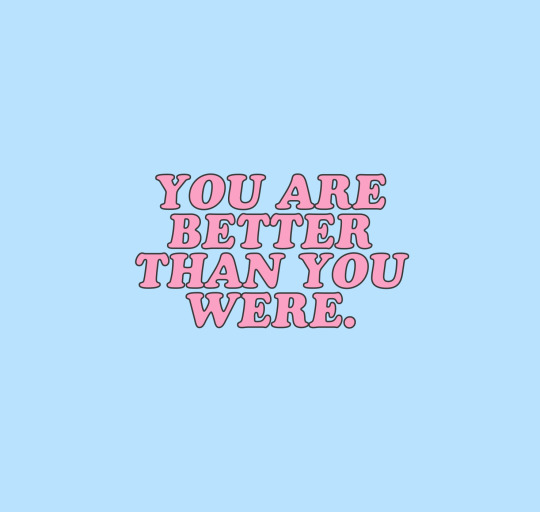
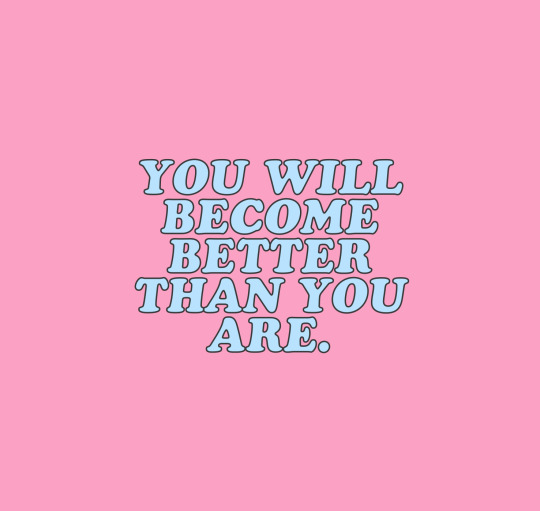
look at how you’ve come and be motivated by how far you can still go. dont give up :))
63K notes
·
View notes
Text
Alternative readings for The Body Keeps the Score
hi, i'm a practicing mental health therapist and a writer here on tumblr dot com. the body keeps the score by dr. bessel van der kolk has a couple issues with it, primarily in the author's very much cishet male eurocentric approach to trauma and the graphic nature of the book. here's a list of some books about trauma that i've found preferable to the body keeps the score in addressing trauma and how the body holds onto trauma. i've included pdf links for ones i could find:
HEALING TRAUMA by peter a. levine. this one is a far less denser read than the body keeps the score while still providing solid education on trauma symptomatology. it even comes with mp3 access to exercises to address somatic symptoms.
MY GRANDMOTHER'S HANDS by resmaa menakem. this one discusses how racism in america is ingrained in our society and how intergenerational racial trauma is ingrained in our bodies.
INFLAMED by rupa marya & raj patel. this was written in response to the COVID-19 pandemic and the structural injustices in medicine that caused so many racial disparities in response to the COVID-19 pandemic, and how trauma caused by our political systems affect the different systems of the body.
THE POLITICS OF TRAUMA: SOMATICS, HEALING, & SOCIAL JUSTICE by staci haines. a great read on how trauma is not just an individual problem but a societal problem, and how to integrate trauma work into society at large.
TRAUMA & RECOVERY by judith l. herman. this is a classic in the therapy field and really set the tone for our modern approaches to trauma treatment. the pdf linked is the first edition of the book but it has since been updated as we learn more about complex trauma.
THE BODY NEVER LIES: THE LINGERING EFFECTS OF CRUEL PARENTING by alice miller. what it says on the tin: this book covers the effects of trauma inflicted by parents on the body and the brain.
cheers, and happy reading!
665 notes
·
View notes





